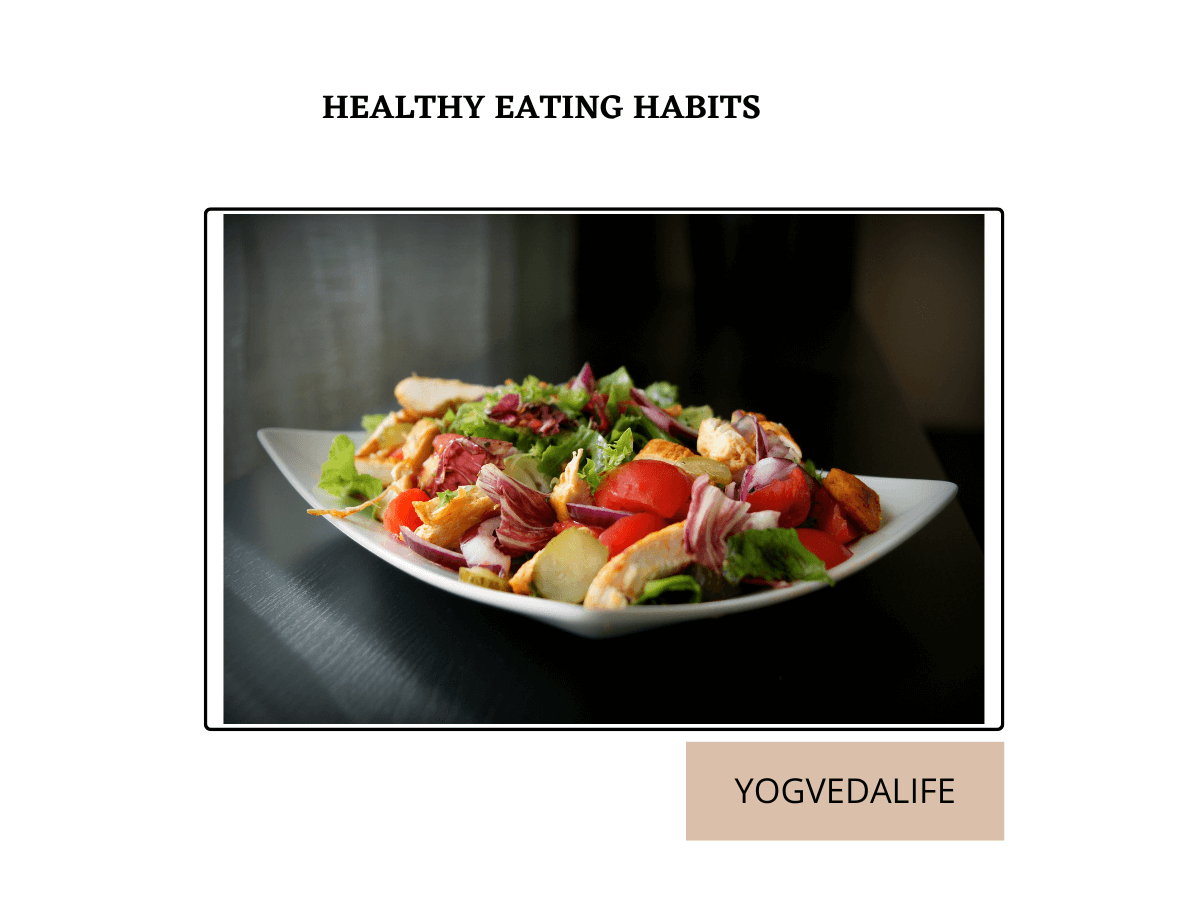How you eat helps turn back the clock. Missing breakfast, snacking on the run, and grazing while watching TV are all associated with eating excess calories and foods low in vital nutrients. Most of all, they preclude the joy of sharing food with people you love. Those with a close network of family and friends to share mealtimes with tend to live longer, more fulfilled lives. Hence, healthy eating habits are important.
Rituals of eating
Think of meals as sacrosanct times when you stop and relax during the day. Ensure you set aside enough time for food preparation, eating, and cleaning up. Eat sitting at the table to aid digestion and allow you to savor the texture, color, and scent of food: enjoying food has as much to do with these sensations as with taste.
Setting the table

To give mealtimes a sense of occasion, clear the table of everything except food-related items. Put away work files, homework, and unpaid bills. Throw over a clean tablecloth, place some fresh flowers or a candle in the center, add a water pitcher with ice and lemon, and set cutlery, glasses, and napkins. Choose coordinating plates and warm them before serving food.
Stop multitasking
Stop doing anything other than eating at mealtimes. Research suggests that people who eat while on the internet, working, driving, or chatting on the phone tend to eat more than those who eat without distraction simply because they are not focused on the act of eating.
Ban TV dinners

The first rule of natural eating is to turn off the TV because it diverts attention from the quality of your food and the quantity you are eating.
Put down your fork
Between mouthfuls, put down your knife and fork. If your fingers feel restless, place them on your lap, palms facing upward. Enjoy the sensation of chewing and appreciate it.
The release of flavors. Chewing and savoring food not only aids digestion but also turns a meal from a period of processing, where speed is the focus, to a time of delight.
Count each chew
Chew each mouthful until every last vestige of taste has been given up and the food is small enough to swallow easily. Chewing triggers the release of enzymes and fluids that ensure easy and proper digestion.
Eating meditation

Don’t miss out on the spirit-refueling possibilities of eating with all your senses engaged. Before sitting down to eat, make sure you are hungry. Sit upright, close your eyes, and focus within.
Open your eyes and look at your plate, as if for the first time: examine the blend of colors and textures, steam rising, or oil beads. When other thoughts arise, let them pass, and bring your awareness back to the food in front of you.
As you cut and spear, appreciate the textures: crisp, tender, oozing. Close your eyes, place a morsel in your mouth, and feel the sensations as flavors activate taste buds on various parts of your tongue.
After finishing, sit in silence briefly and concentrate on your digestion. Visualize food circulating through your body systems and being transformed into energy.
No more grazing
Nibbling mindlessly between meals (and finishing up leftovers) is a surefire way to take on board calories without enjoying the experience of eating. If you want a snack, dedicate time to it.
Write it down?

If you’re unsure how healthy your diet is, start a food journal. Every day, write down exactly what you eat and when. After a week, scrutinize your results and try again.
To recognize patterns. Do you slip into bad habits mid-afternoon, or when you get home from work?
Are your cupboards packed with processed foods because you go to the supermarket when you are hungry or accompanied by kids?
Sharing meals

Food is most pleasurable when shared. Aim to eat at least once a day with those who share your home, or with friends if you live alone. You might only be able to sit down together for breakfast, but insist on it, even if it only lasts a few minutes.
At mealtimes, problems can be discussed, opinions expressed, relationships worked on, and jokes enjoyed. Once a week, try to organize a more formal meal with more than one course and wine, where children are expected to stay at the table and converse.
Stock the pantry

Amass enough healthy staples to be able to throw together a healthy, tasty pasta dish in a hurry. Keep onion and garlic in the vegetable rack, extra-virgin olive oil, canned plum tomatoes and tomato purée, anchovies, good spaghetti in the cupboard, black olives, and parmesan cheese in the fridge.
Brush your teeth

Brushing teeth after meals has been shown in a Japanese study to be a habit associated with people who keep their weight at a healthy level.
Give thanks
Even if you don’t say grace at mealtimes, think about all the people who made it possible for the food to reach your plate: farmers, transport workers, energy suppliers. Appreciate the interdependence of lives across the globe.
ALSO- https://yogvedalife.com/why-it-is-important-to-eat-clean-acording-to-season/


[…] ALS0 – https://yogvedalife.com/healthy-eating-habits/ […]